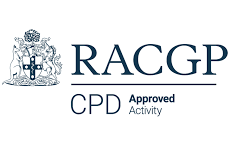General News
20 May, 2024
GPs express budget woes
The Royal Australian College of General Practitioners (RACGP) believes the Federal Budget has “dropped the ball” on providing available and affordable essential healthcare, particularly in regional and rural areas like Maryborough. The latest...

The Royal Australian College of General Practitioners (RACGP) believes the Federal Budget has “dropped the ball” on providing available and affordable essential healthcare, particularly in regional and rural areas like Maryborough.
The latest budget released last Tuesday aims to invest over $8 billion into the health sector which includes $3.4 billion to amend the Pharmaceutical Benefits Scheme and $882.2 million to support older patient care to allow discharge from hospitals sooner.
Despite this level of funding, RACGP president and former Maryborough resident Dr Nicole Higgins said she is disappointed by the budget.
“This Federal Budget dropped the ball on the workforce in rural and regional Australia, we know that there is a significant shortage and every person across Australia deserves to have access to a general practitioner (GP),” she said.
“Every GP is already an Urgent Care Centre — GPs see people when they are acutely unwell, dealing with chronic diseases, mental health crisis and ongoing care.
“We are the foundation for the health care system and we are seeing what happens when you don’t invest in GP — you have overflowing hospitals and emergency departments.”
Dr Higgins said the budget had the wrong priorities towards fixing the health system, calling for more funding in health affordability and education.
“We would have loved to see more funding to GPs to keep people out of our hospitals,” she said.
“We wanted to see the Federal Budget make care more affordable, that could have been done by increasing the Medicare rebate.
“We also wanted more support for our GP workforce, we have more medical students going through than ever, but only 10 percent are choosing GP as a career.
“We need to make sure we train more GPs for the future and we need our medical students out there being exposed in our rural and regional areas, so they are more likely to come back and be a GP in towns like Maryborough.”
Clarendon Medical Centre GP Dr Daniel de Villiers agrees with Dr Higgins, and is asking for more government support to provide accessible health for regional and rural communities.
“We certainly need governments of all levels to come to the party in terms of getting GPs into regional and rural areas,” he said.
“GPs’ underpin the whole of the health system — we provide an overall view and understanding of health for our patients.
“Regional and rural GPs are much more demanding than city practice, it requires a far higher skillset and responsibility.
“There needs to be an effort by governments to make studying towards becoming a GP more attractive and more incentives to become a regional or rural GP.”
Clarendon Medical Centre’s appointment website states that baring cancellations, the next available appointment with a doctor at the clinic will be on June 28.
To combat this, the Federal Budget aims to build 29 Medicare Urgent Care Clinics across regional and remote Australia.
However, Dr de Villiers believes that money would be better spent elsewhere.
“It’s one thing to build an Urgent Care Centre, it’s another thing to staff it,” he said.
“Urgent Care Centres cannot become a medical home for a patient — it is a very time consuming consultation, the practitioner needs to find all the information about a patient from ground zero.
“These centres are helpful and I don’t think we should be negative towards it but they don’t replace an adequate GP workforce that can provide a medical home to a patient.”